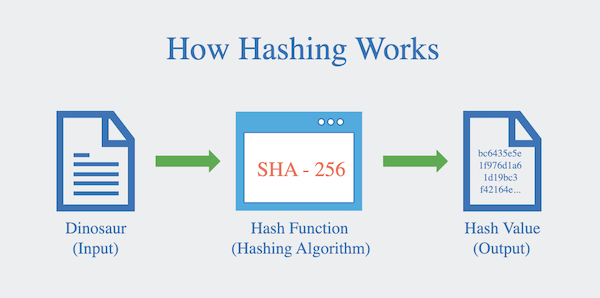Categories: General Information
What Is a Blockchain Hash? Demystifying Hashes in Blockchain
Blockchain technology has revolutionized various industries, from finance to supply chain management. At the heart of this innovation lies the concept of hash, a fundamental element that ensures the security and integrity of blockchain data.
In this article, let's join U2U to explore "What Is a Blockchain Hash?" and delve into the world of hash to understand its role in blockchain. Additionally, we will explore common hash algorithms, evaluate its security, and address the challenges it poses.
Table of Contents
What Is a Blockchain Hash?
In a cryptocurrency blockchain, a hash is a fixed-length hexadecimal number. This means that regardless of the length of the input, the resulting hash will always have the same number of characters. For example, Bitcoin's hashes consist of 64 digits.

Hashes serve the purpose of securing information. In the context of cryptocurrency, they are used to ensure the integrity of data within the blocks on a blockchain. The data that undergoes encryption through the hashing function is verified by network participants as they attempt to generate a hash that is below the network's target. Once the target hash is achieved, the network finalizes the block. Consensus is reached once the block is closed, as the network continues to validate transactions and block information even after the hash has been solved.
Understanding the Concept of Hash
In the realm of computer science and cryptography, a hash is a mathematical function that takes an input (or 'message') and produces a fixed-size string of characters, typically a hexadecimal number. This output, known as the hash value or digest, is a unique representation of the input data. Even the slightest change in the input will result in a significantly different hash value.
Common Hash Algorithms Used in Blockchain
Several hash algorithms are widely used in blockchain technology, including:

- SHA-256 (Secure Hash Algorithm 256-bit): Utilized in Bitcoin and many other cryptocurrencies, SHA-256 is known for its robust security.
- Ethereum's Keccak-256: Ethereum employs Keccak-256 as its hashing algorithm, ensuring the integrity of its smart contracts and transactions.
- Scrypt: Often used in altcoins, Scrypt is designed to be memory-intensive, making it resistant to certain types of attacks.
Is Hashing Secure or Not?
Hashing is a crucial component of blockchain security, but it is not entirely immune to vulnerabilities. While it is computationally infeasible to reverse engineer a hash value to reveal the original input, hash collisions can occur. A hash collision is when two different inputs produce the same hash value. To mitigate this risk, blockchain developers choose robust hashing algorithms and implement best practices in their code.
Challenges Associated with Hashing in Blockchain
Despite its importance, hashing in blockchain presents challenges, including:

- Scalability: As blockchain networks grow, the computational resources required for hashing can become a bottleneck.
- Quantum Computing: The emergence of quantum computing poses a potential threat to current hash algorithms, necessitating the development of quantum-resistant algorithms.
- Energy Consumption: Proof-of-work blockchains, which rely on hashing for consensus, have drawn criticism for their energy-intensive mining processes.
Conclusion
Hash is a fundamental building block of blockchain technology, providing data security and integrity through cryptographic hashing algorithms. It ensures the immutability of blockchain data and protects against tampering. While hash functions are a cornerstone of blockchain security, they are not without challenges and potential vulnerabilities.
As the blockchain ecosystem continues to evolve, so too will the methods and algorithms used to maintain the integrity of this revolutionary technology. Understanding hash and its role in blockchain is crucial for anyone looking to explore the depths of this transformative innovation.
Thank you for your interest in following Unicorn Ultra's article, 'What Is a Blockchain Hash?' Stay with us for our upcoming blogs.
